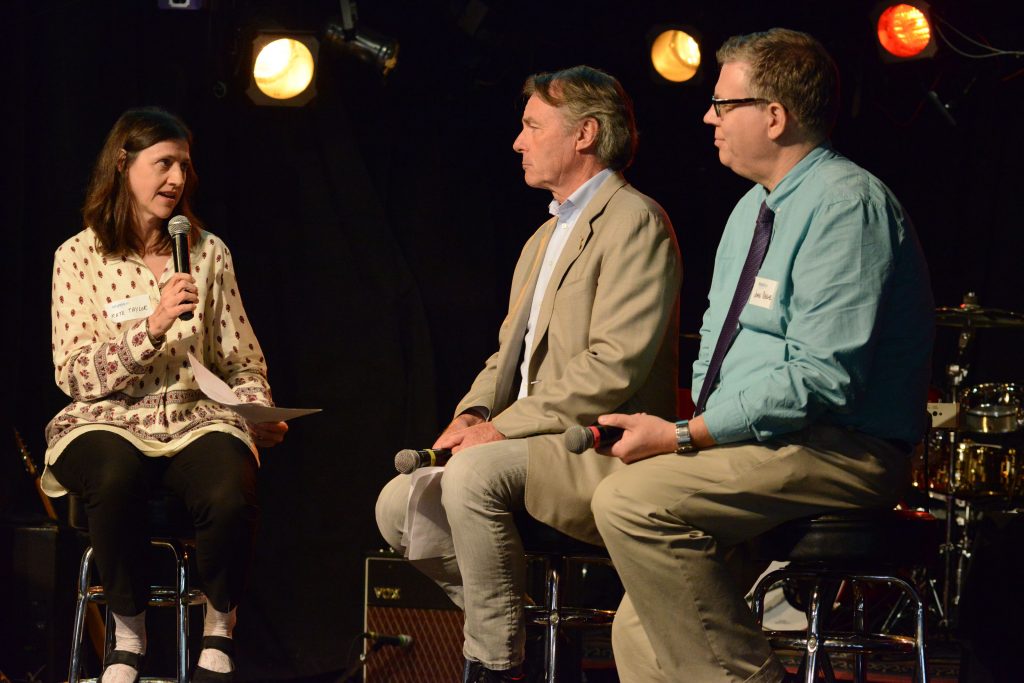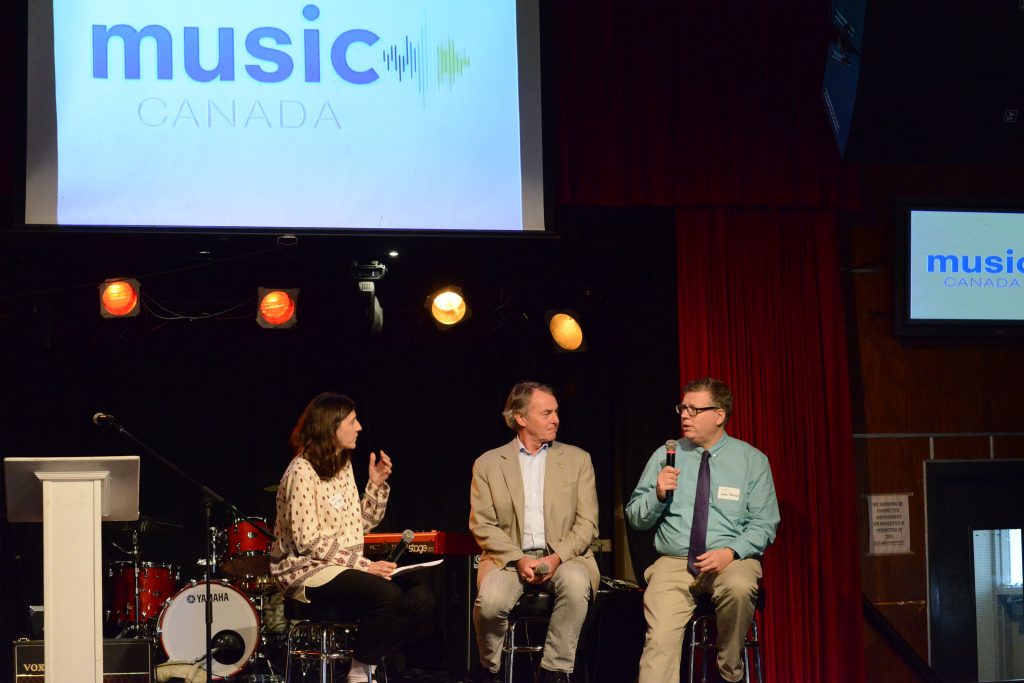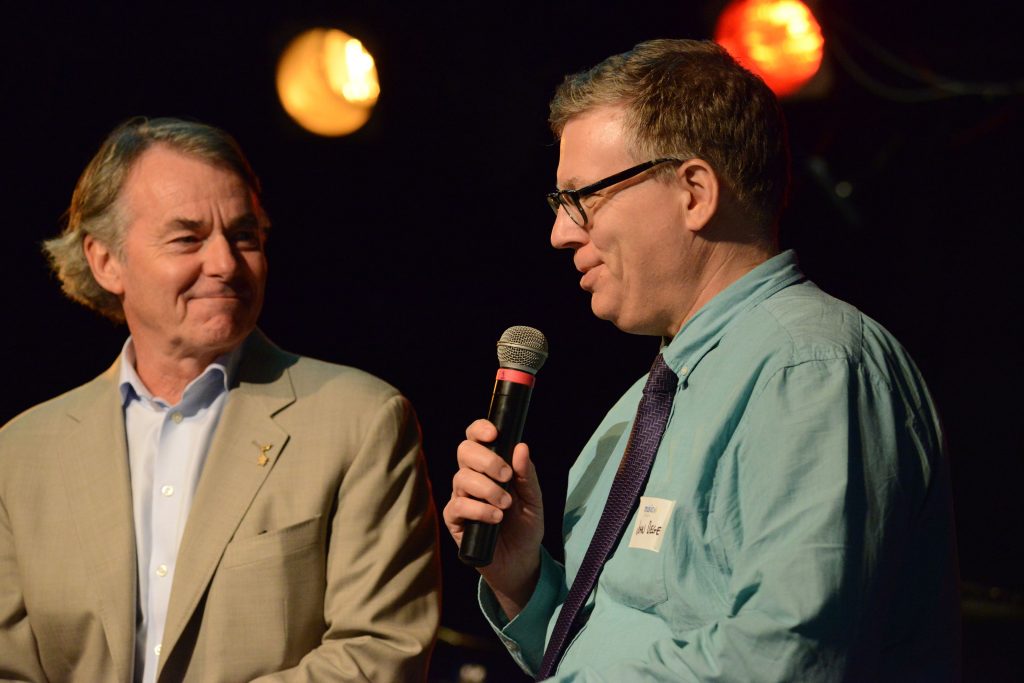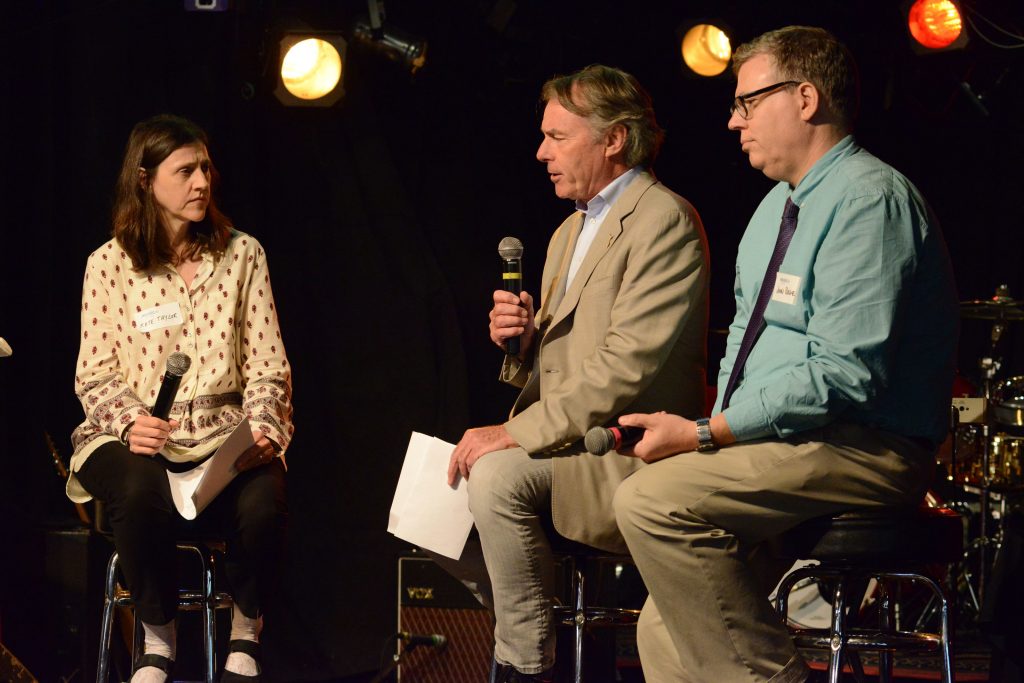The panel discussion at Music Canada’s 2016 AGM put the spotlight on the ability of creators to earn a living in the digital age. Sharing perspectives from two of Canada’s great cultural industries, writing and music, John Degen and Graham Henderson discussed something common to all of Canada’s cultural sectors – the need for a functioning marketplace that properly remunerates creators when their work is used. John and Graham were interviewed by Kate Taylor, an expert in Canadian cultural sovereignty in the digital age.
The panel was introduced by Steve Kane, President of Warner Music Canada.
John Degen is a poet and author, and the Executive Director of the Writers’ Union of Canada. For the last two years, John has chaired the International Authors Forum, an umbrella organization for authors’ organizations around the world, with a network of around 650,000 authors. John is a long-time partner of Music Canada on issues affecting creators in Canada and an outspoken advocate for creators’ rights.
Kate Taylor is an award-winning novelist and journalist with the Globe and Mail, where she currently serves as lead film critic. Kate previously hosted Music Canada’s Global Forum at CMW 2015, where the topic was The Survival of the Creative Class.
Graham described how remuneration for creators has steadily eroded over the past 20 years, and how it’s harder than ever for a middle class of creators to earn a living from their work. Graham summarized the effect of the digital shift with a quote from Francis Gurry, Director General of WIPO, as a “seemingly avoidable and inappropriate loss of value to creators, performers and the creative sector.” Graham noted the key was that this was avoidable; it didn’t have to be this way. Wealth created by the enormous opportunities technology, which creators have embraced, brings is not finding its way to the creative side of the ledger, despite the best intentions of the lawmakers who wrote the rules currently governing the digital environment.
A 2015 Writers’ Union study titled Devaluing Creators, Endangering Creativity found that, taking inflation into account, writers are making 27% less than they were making in 1998 from their writing, while 45% of writers say they must do more to earn a living now. John confirmed that trends in Canada are happening all over the world. The conditions under which creators work are becoming increasingly difficult. Globally, there has been a 27-29% decline in authors’ income.
Regarding the current Canadian cultural policy review, titled Canadian Content in a Digital World, the panel agreed the goal for creators is to have a functioning marketplace in place. John called the review a golden opportunity for a necessary conversation about “fair trade culture,” so that people who “only identify as consumers of culture understand just what underlies the value of the product that they’re buying.”
Graham also spoke to the shape he hopes the review will take. “For us, what would be epic, would be a meaningful review of the rules that were put in place in the late 90s, and the rules that were put in place in 2012, to take into account this new reality; the reality that we have no middle class,” he said. “It increasingly looks like a lottery and if you win the lottery, you win an enormous amount of money, and everybody else is struggling. I think the question we have to ask Minister Joly and the government is – is creation a profession, or do they think its a hobby? And if you think it’s a profession then they have to, and we have to, stand up for the rights of creators to be paid appropriately.”
The full video of the panel can be viewed below.

For more photos from the Annual General Meeting, visit our photo album on Facebook.





Music Canada